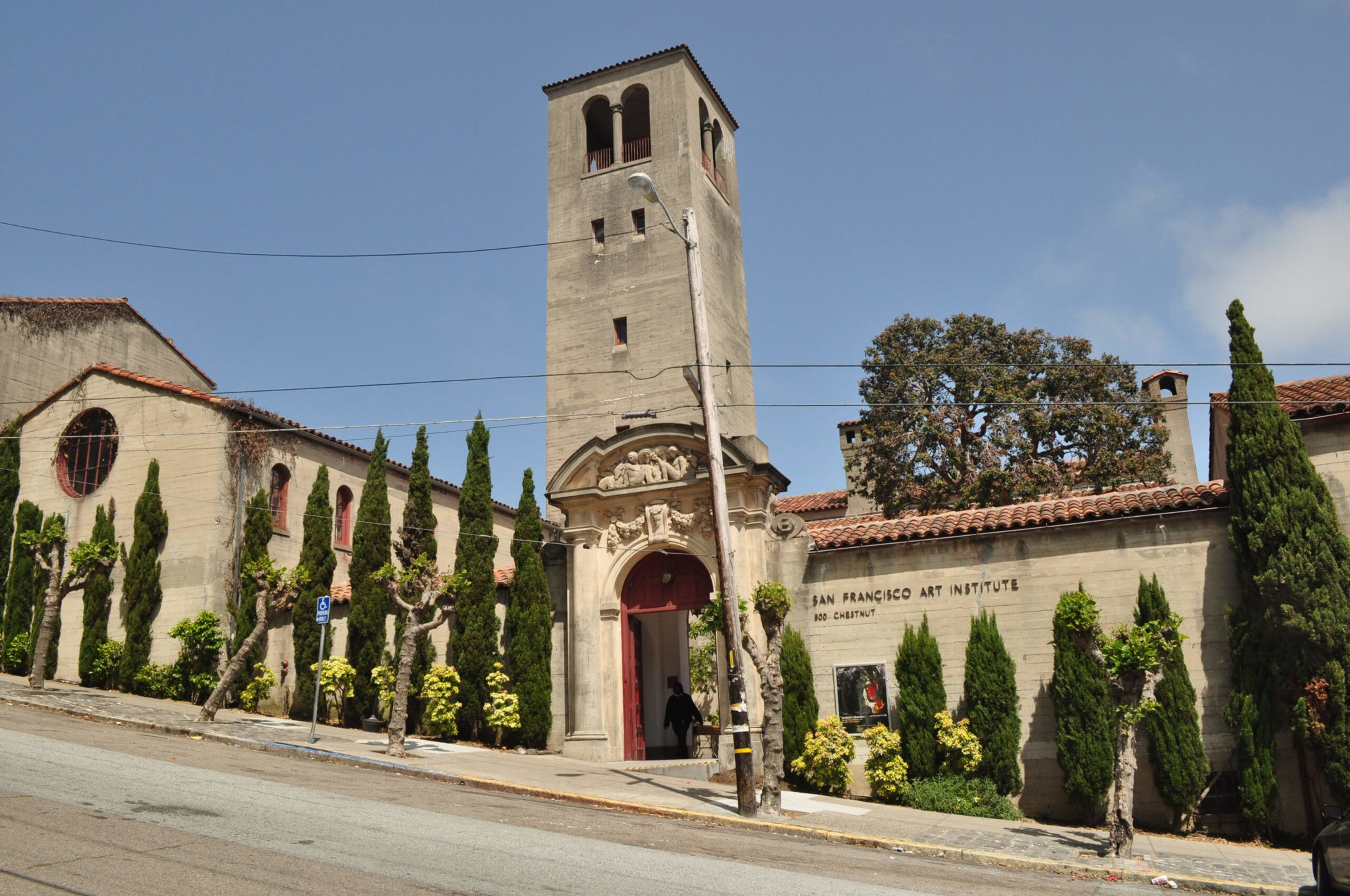The University of San Francisco dropped plans to acquire the San Francisco Art Institute, delivering a death blow to the 151-year-old school.
In separate press releases issued today, both schools confirmed that a proposed merger between USF and the art school, agreed to in January and announced in February, has fallen through.
“After five months of extensive exploration and discussion about a possible integration of arts education programs for undergraduate and graduate students, the University of San Francisco (USF) has informed the San Francisco Art Institute (SFAI) that a full integration of the two universities is not feasible due to financial and other considerations,” stated a press release from the University of San Francisco, which also announced an expansion of its arts curriculum.
SFAI also said it was “no longer financially viable” and would no longer grant degrees or host students or faculty on its historic Russian Hill campus. The institute—one of the country’s oldest art schools—marked its final commencement of students on July 12.
In January, the University of San Francisco and SFAI signed a letter of intent to explore the possible purchase of assets and an integration of the two school’s fine arts and liberal arts programs.
In its press release, however, USF cited “business risks” and “several critical issues… notably around SFAI’s financial status, student enrollment projections, and costs required for ADA compliance and deferred maintenance on SFAI’s Chestnut Street property” that emerged during talks with SFAI as reasons for not moving forward with the acquisition.
When asked for a response to the business concerns addressed in USF’s press release, SFAI referred questions to USF.
“While disappointed by this outcome with SFAI, we remain committed to strengthening opportunities for our students and faculty to explore the fine arts within the context of Jesuit education,” USF President Paul J. Fitzgerald said in the release.
In the same communique, USF also noted that the university would hire more arts faculty and launch BFA and MFA programs in the next two years once it secures the requisite accreditation.
Some criticized the acquisition deal from the start.
Nato Green, an organizer at SEIU Local 1021, said the would-be purchase is part of a larger trend impacting the labor force and, on the local level, workers at Oakland’s Mills College (opens in new tab) and California College of the Arts (opens in new tab).
“This is a move I’ve seen repeatedly in higher ed—a big PR push that is dutifully reported in the media announcing a bold new educational initiative without any details or supporting documentation that eventually turns out to be an elaborate cover for a real estate deal,” he told The Standard.
In a separate news release, SFAI said the goal of the proposed merger “was to create a path forward, protect the well-being of students, faculty, and staff, and provide a fine arts education that would build upon SFAI’s 151-year legacy and pedagogical tradition. However, SFAI recently learned that it would not receive an acquisition offer.”
SFAI said USF President Paul J. Fitzgerald notified the art school in a letter that it would not receive an acquisition offer on July 7 as expected.
While the campus will no longer be open to students or faculty, SFAI intends to create a nonprofit foundation to preserve its name, legacy and archives, which encompass a wealth of historical assets from key 19th and 20th-century art movements such as Abstract Expressionism, Bay Area Figuration, Color Field, California Funk and the Mission School.
“While SFAI will not continue in its current form,” SFAI’s announcement said, “its spirit, embodied in its global alumni community and the new Foundation for its archives, is unbroken and immortal.”
Among SFAI’s most notable belongings is a Diego Rivera fresco at the school’s Chestnut Street campus for which it received a $200,000 Mellon Foundation grant for conservation earlier this year. According to the release, SFAI will lose the fresco if it defaults or loses its lease on the building, which is owned by the University of California.
The SFAI announcement said the school is “actively working with local and international donor communities to protect the fresco.”
SFAI officials told The Standard that the institute had recently completed conservation of the famed fresco and would work with the Mellon Foundation on how to address the remaining funds for the project.
